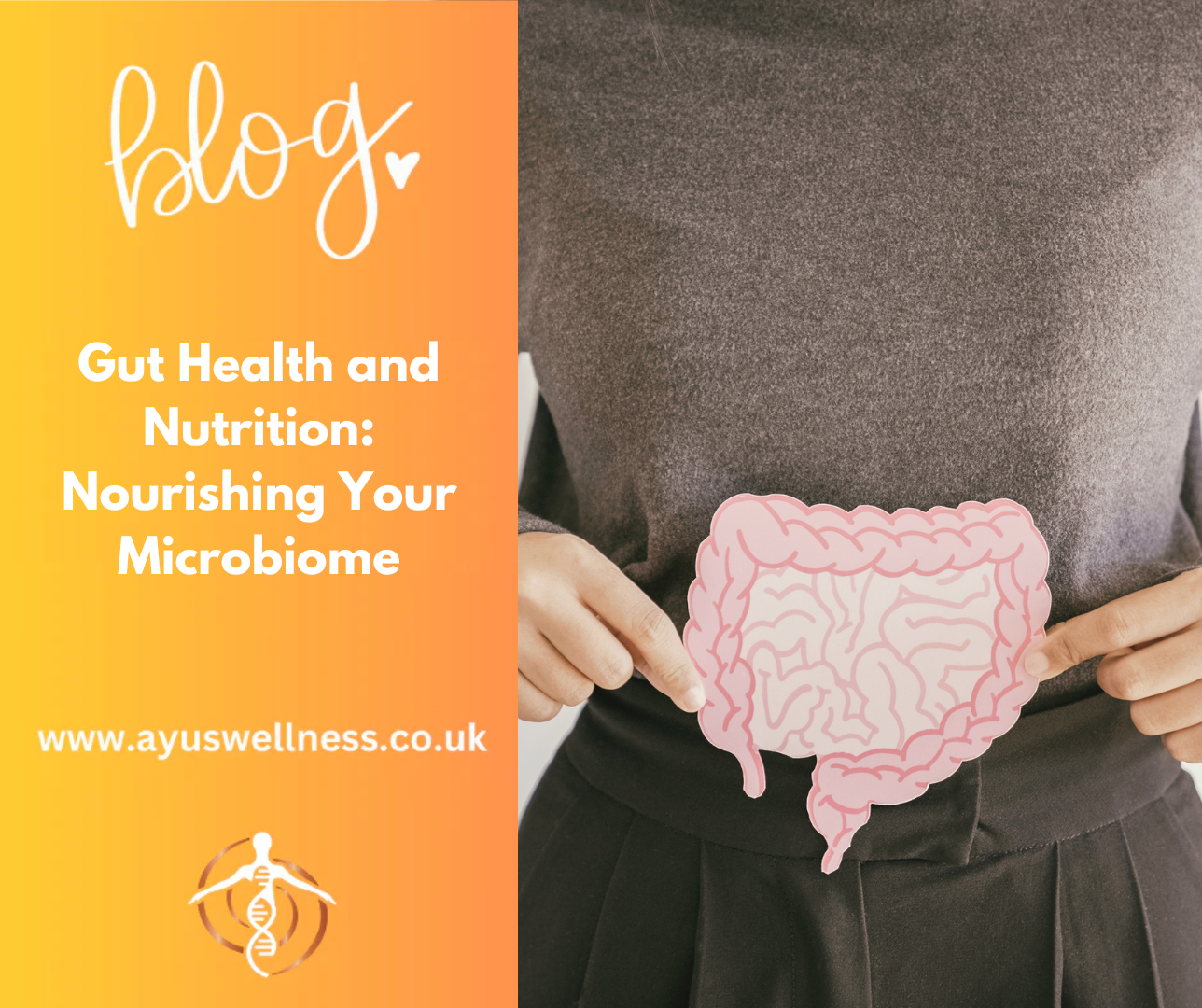
Understanding Gut Health and the Microbiome
The gut microbiome is a diverse community of bacteria, viruses, fungi, and other microorganisms that reside in your digestive tract. These microorganisms play a vital role in:
- Digestion: Helping break down food and absorb nutrients.
- Immune Function: Supporting the immune system by preventing harmful bacteria from taking over.
- Metabolism: Influencing metabolism and energy balance.
- Mental Health: Communicating with the brain via the gut-brain axis, impacting mood and cognitive function.
A healthy gut microbiome is balanced, with a diverse range of beneficial bacteria that outcompete harmful microorganisms.
Key Nutrients for Gut Health
Supporting a healthy microbiome requires a diet rich in specific nutrients. Here are key nutrients that nourish your gut:
1. Fiber
Fiber is essential for gut health as it serves as food for beneficial bacteria. There are two types of fiber:
- Soluble Fiber: Found in oats, apples, and beans; helps soften stool and promote regularity.this is very beneficial for our gut bacteria which digest soluble fibre, to form short chain fatty acids, these can help reduce inflammation, aid repair of the gut wall and optimise the gut-brain connection.
- Insoluble Fiber: Found in whole grains, nuts, and vegetables; adds bulk to stool and aids in digestion.
2. Probiotics
Probiotics are live beneficial bacteria that can help maintain or restore a healthy microbiome. They are found in:
- Fermented Foods: Such as yogurt, kefir, sauerkraut, kimchi, and kombucha.
- Probiotic Supplements: Available in various strains, often recommended for specific health conditions.
3. Prebiotics
Prebiotics are non-digestible fibers that feed beneficial bacteria. Common sources include:
- Inulin: Found in chicory root, garlic, onions, and bananas.
- Resistant Starch: Found in foods like green bananas, cooked and cooled potatoes, and legumes.
4. Polyphenols
Polyphenols are plant compounds with antioxidant properties that support gut health. Sources include:
- Fruits: Such as berries, apples, and grapes.
- Vegetables: Such as broccoli, onions, and spinach.
- Dark Chocolate and Green Tea: Rich in polyphenols that benefit the gut microbiome.
Practical Tips for Nourishing Your Gut
Here are some practical strategies to help you nourish your gut through your diet:
1. Eat a Diverse Diet
A diverse diet rich in different types of fruits, vegetables, whole grains, and lean proteins promotes a varied microbiome. Different foods provide different nutrients and fibers that feed a wide range of beneficial bacteria.
2. Incorporate Fermented Foods
Add fermented foods to your diet to introduce beneficial probiotics. Examples include:
- Yogurt: Choose plain, unsweetened varieties with live active cultures.
- Kefir: A fermented milk drink rich in probiotics.
- Sauerkraut and Kimchi: Fermented vegetables that add a probiotic boost to meals.
- Kombucha: A fermented tea drink that supports gut health.
3. Increase Fiber Intake
Focus on incorporating both soluble and insoluble fiber into your meals. Foods high in fiber include:
- Fruits and Vegetables: Such as apples, berries, carrots, and leafy greens.
- Whole Grains: Such as oats, quinoa, and brown rice.
- Legumes: Such as beans, lentils, and chickpeas.
4. Stay Hydrated
Adequate hydration is essential for digestion and overall gut health. Drink plenty of water throughout the day to support the digestive process and maintain a healthy gut lining.
5. Limit Processed Foods and Sugars
Processed foods and added sugars can negatively impact the gut microbiome by promoting the growth of harmful bacteria. Aim to reduce your intake of processed snacks, sugary drinks, and refined carbohydrates.
6. Manage Stress
Chronic stress can disrupt the balance of your gut microbiome. Practice stress-reducing techniques such as mindfulness, meditation, yoga, and deep breathing exercises to support gut health.
FAQs
Q: How long does it take to see improvements in gut health after changing my diet?
A: Improvements in gut health can vary, but many people start to notice positive changes within a few weeks of adopting a gut-friendly diet. Consistency is key.
Q: Can taking probiotics improve my gut health?
A: Probiotics can help maintain or restore a healthy microbiome, especially after antibiotic use or during digestive issues. However, it's important to choose the right strains and consult with a healthcare professional.
Q: What are some signs of an unhealthy gut?
A: Signs of an unhealthy gut include digestive issues (such as bloating, gas, diarrhea, or constipation), frequent infections, fatigue, skin problems, and mood disturbances.
Wrapping It Up
Nourishing your microbiome through a nutrient-rich diet is essential for optimal gut health and overall well-being. By incorporating a variety of fiber-rich foods, fermented products, and staying hydrated, you can support a balanced and healthy gut microbiome. Embrace these practical tips to enhance your gut health and enjoy the benefits of improved digestion, immunity, and mental health.



